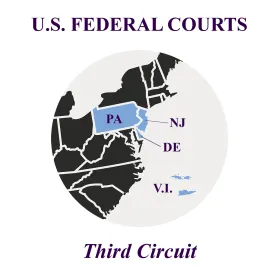The ongoing pandemic saga and current economic slowdown prompt us to revisit bankruptcy — this time with an environmental focus. The Bankruptcy Code (11 U.S.C. §101 et seq.) allows a debtor who files both breathing room and a fresh start. Courts have been inconsistent with balancing the Code against the social needs of environmental law.
Chapter 11 deals with reorganizations. After filing, there is an automatic stay of most claims while the debtor gives notice to creditors and seeks court confirmation of a reorganization plan with its creditors. Creditors must timely file proof of claims, which are sorted as contested vs. uncontested, priority, routine, etc. Discharges and distributions are involved in the final court order.
What happens when environmental claims on the debtor’s assets arise, e.g., penalties and cleanup orders? Although the automatic stay provisions at Section 362 have little pertinence to agency environmental judicial decrees,[1] the section will normally stay enforcement of many judgments and lawsuits. Beyond stays, how are environmental claims to be treated during the bankruptcy?
In the recent case In Re: Exide Technologies, Reorganized Debtors, South Coast Air Quality Management District, Appellants v. Exide Technologies, Appellee, 613 B.R. 79 (USDC D. Delaware 2020), the court was faced with post-petition, agency-imposed penalties on the battery manufacturer for exceeding lead and arsenic emission standards. The penalty was to punish and deter and not to serve as compensation to the agency for any loss it incurred. The court found that since the agency sustained no loss or damage due to the company’s fraud in concealing its emission, the penalties were not entitled to priority administration expenses (§§503, 523,1141(d)). They would not benefit the estate. This punitive claim (up to $80 million) was other than a non-dischargeable claim for a corporate debt, despite fraud. This claim was, therefore, not entitled to the status of priority administrative expenses to be paid out of the estate, and was dischargeable.
This was under the Third Circuit, but other circuits do not concur that non-compensation penalties are dischargeable.[2] However, the result is good news for other priority creditors, who will have more of a slice of the estate to satisfy their claims.
Cleanup costs represent a different picture.
In another recent case, In Re: Exide Technologies, Reorganized Debtor, West Salem Storage, LLC, Plaintiff, 600 BR 753 (US Bankruptcy Court, D. Delaware 2019), the court dealt with the debtor’s lead-contaminated property and an “unknown” creditor who in 2011 had acquired the debtor’s contaminated land and had a pre-confirmation/pre-petition claim for the costs over $1 million in remediating lead contamination. The plaintiff had not received actual notice of a claim bar date for its cost. The bankruptcy petitions were filed in 2002 and 2013, the latter being of relevance to this case. The court found that the claim was discharged. The case illustrates the difficulty in determining when environmental claims arise.
West Salem was aware in 2011 of some prior contaminations that had been addressed, but did not know the extent of all contaminations until 2015. The court found that an agency easement and equitable servitude EES had existed on the property, limiting its use since 1999. Under either an “exposure test” or a “fair compensation” test, the court found the EES showed that West Salem should have known of contamination before the 2013 bankruptcy filing. Thus the claims were pre-petition, but West Salem did not have actual notice of the claim bar date. West Salem was an unknown creditor to the debtor since debtor was an earlier ancestor in title.
The court ruled that Exide did not have to examine property records but only use due diligence to examine its own books and records to determine who was the owner of the site at the time of the bankruptcy petition. The court found Exide’s notice of bar date was published in The Wall Street Journal, The New York Times, and 130 land and required newspapers, which satisfied due process. The court found West Salem had adequate and constructive notice. Exide won its motion to dismiss West Salem’s complaint.
These cases represent different scenarios of the discharge of bankruptcy environmental claims that save the debtor’s fresh start and the claims of most other creditors. Post-petition claims and uncontested, timely filed claims can be saved. Most do not lose in bankruptcy environmental cases.
{1] Penn Terra Limited v. Dept. of Env. Resources, 733 F.2d 267 (3rd Cir. 1984) (covering violations and corrective action).
[2] See 150 A.L.R. 159 (original 1998). Other than for corporate debtors, penalties for compensation are non-dischargeable for individual debtors.





 />i
/>i

